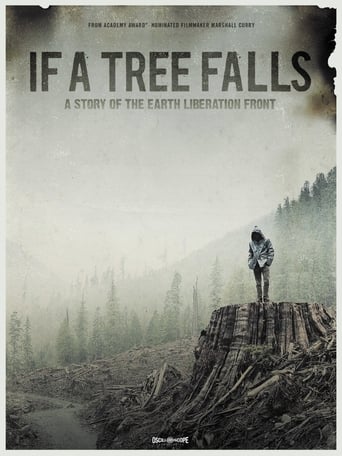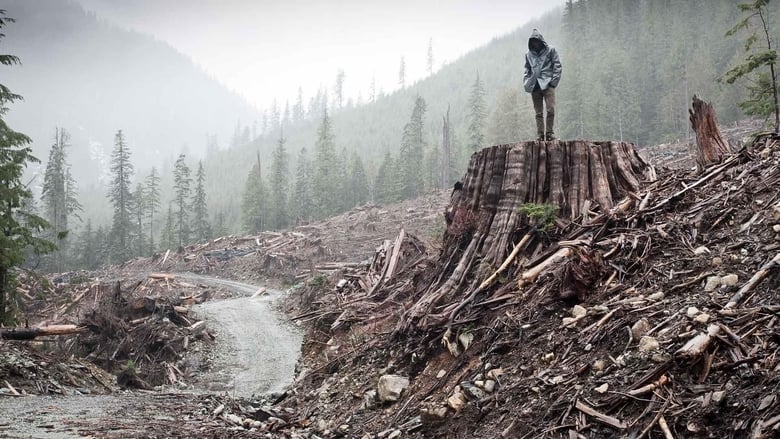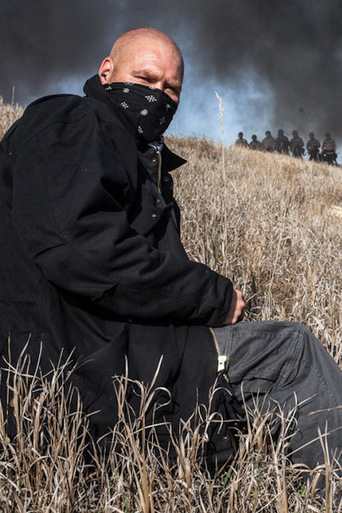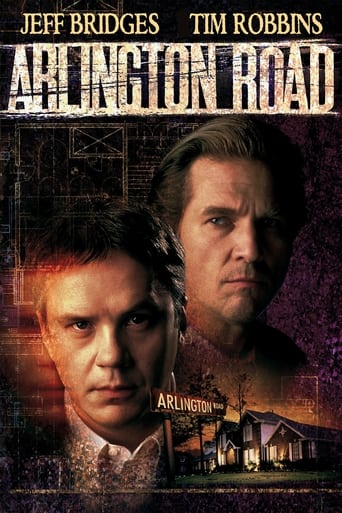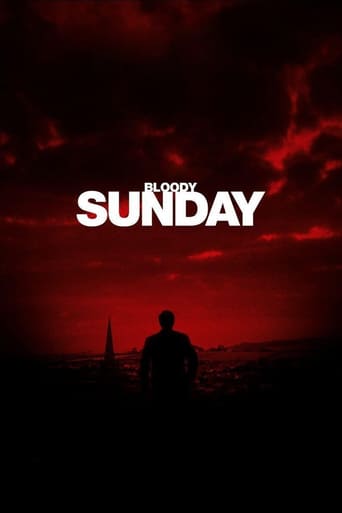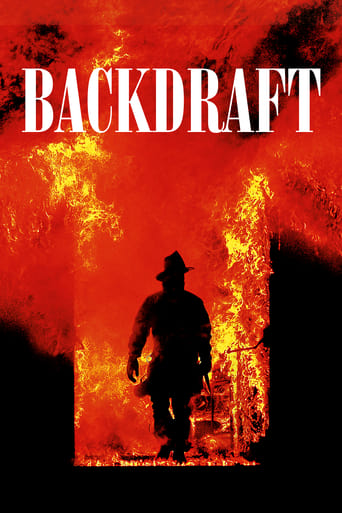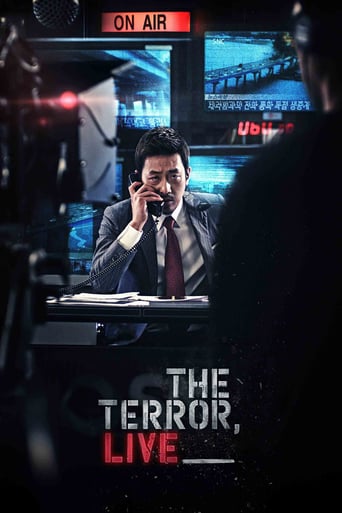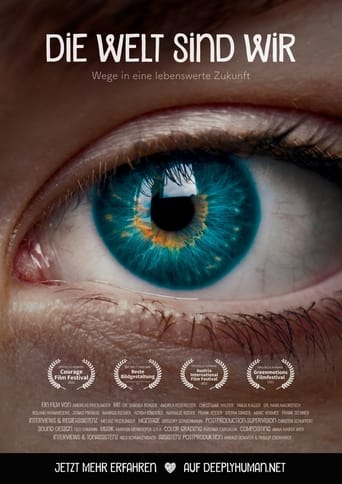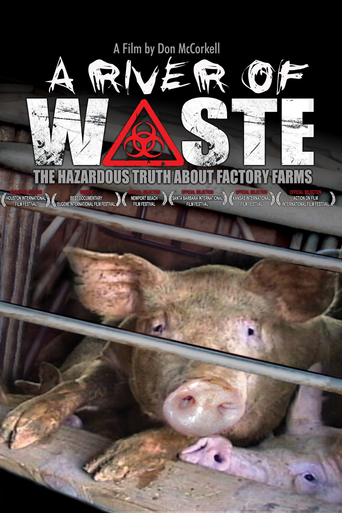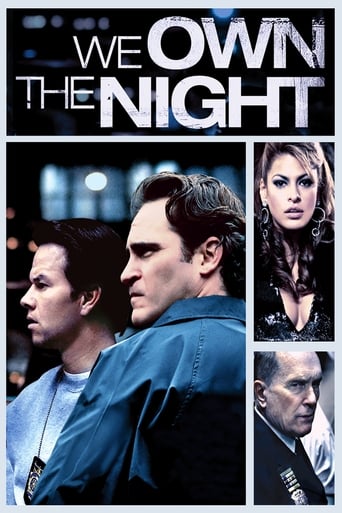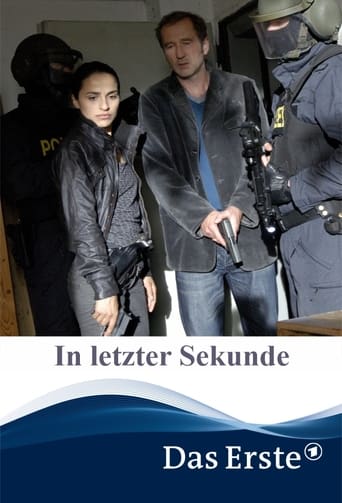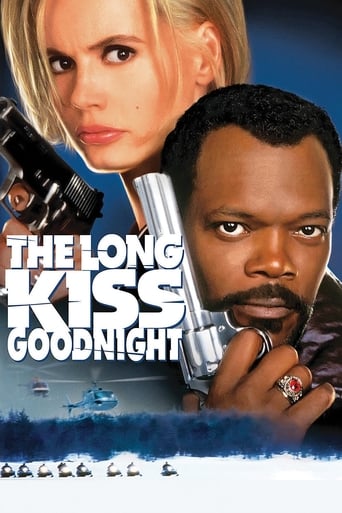If a Tree Falls: A Story of the Earth Liberation Front (2011)
Filmmaker Marshall Curry explores the inner workings of the Earth Liberation Front, a revolutionary movement devoted to crippling facilities involved in deforestation, while simultaneously offering a profile of Oregon ELF member Daniel McGowan, who was brought up on terrorism charges for his involvement with the radical group.
Watch Trailer
Free Trial Channels
Cast


Similar titles
Reviews
Who payed the critics
Slow pace in the most part of the movie.
A film with more than the usual spoiler issues. Talking about it in any detail feels akin to handing you a gift-wrapped present and saying, "I hope you like it -- It's a thriller about a diabolical secret experiment."
This is a coming of age storyline that you've seen in one form or another for decades. It takes a truly unique voice to make yet another one worth watching.
"You can't repair the health of the planet when those who continue to destroy it still make the rules and decisions. The rich won't just give away their money and property, and tyrants won't just lay down their arms and let fall the reins of power." – Michael Hardt "If you are looking to change the rules, why start by abiding by them? You have to start from the premise that fairness can't be 'resumed' because it was never there in the first place. In conditions where everything is stacked against the majority, 'playing fair' amounts to accepting a position of disadvantage. In fighting for fairness, one doesn't have to 'play fair'." - Mark Fisher An interesting documentary by Marshall Curry, "If a Tree Falls" delves into the life, arrest and trial of Daniel McGowan, a member of the Earth Liberation Front. In 2011, the film was nominated for a Best Documentary Academy Award.Curry's film peers into McGowan's childhood and attempts to examine the motivations of those who populate the ELF, a group which many dub an "eco terrorist organisation". Like most who resort to violence – the ELF sets fire to various businesses and corporations – McGowan and his compatriots see themselves as "freedom fighters" who have been "forced" into using guerrilla tactics. For the ELF, official channels are futile, power is too entrenched and the status quo blocks all reform."Tree's" second half interviews land owners, the police and the Department of Justice, all of whom succeed in getting ELF members categorised as "terrorists". Such a label allows the US government to aim its various multi-billion dollar anti-terrorist wings at the group. As a result, the ELF now lays low. An offshoot of the British Earth First! movement, it was at the height of its power in the 1990s and early 2000s. Its ideology stressed anti-authoritarian anarchism, environmentalism, an anti-capitalist stance and a commitment to a collective defence of the Earth. It took the form of a transnational, decentralised network of clandestine, autonomous cells, with each cell's broader operational knowledge derived from books and lectures disseminated by mainstream environmentalists. "Our earth is being murdered by greed, corporate and personal interests," one of the group's press releases would state. "The rape of the Earth puts everyone's life at risk. There are over 6 billion people on this planet of which almost a third are either starving or living in poverty. The time has come to decide what is more important: the planet and the health of its population or the profits of those who destroy it and us. We are but the symptoms of a corrupt society on the brink of ecological collapse."Today, many dismiss the ELF as nutty radicals (the term "radical" comes from the Latin word "radicalis", meaning "to get to the root of a problem"), yet even the Pentagon and US military now annually publish detailed reports fretting about the dangers of climate change. Mainstream environmental groups likewise ceaselessly moan about the dangerous acidification of the earth's oceans, the daily extinction of species and so forth. This is what author and philosopher Rob Nixon calls a "slow violence", referring to the attritional lethality, or cumulative effect, of many environmental crises (climate change, toxic drift, ocean PH levels, 95 percent of US forests being cleared, heat rises due to exponential rising global energy requirements, deforestation, oil spills, the leaking of arsenic, lead, selenium, mercury etc). All of this is ignored.Meanwhile, the Law frets about the illegality of the ELF. But the criminal justice systems in capitalist liberal democracies have always been less about justice and more about shifting attention away from social problems (whilst shunting blame upon the working classes). It's no surprise, then, that the ELF rejects the false moralism that defines the acceptability of actions by their acceptability to Power. Indeed, throughout history, breaking the law has been straightforwardly just and reasonable. Likewise, throughout history, upholding the law has often represented an acceptance of systemic injustice and violence. The hungry do not need to justify their efforts to feed themselves. The dispossessed or landless do not need to explain their attempts to house themselves. The brutalised do not need to seek permission to stop brutality. Their efforts are not radical. Radicalism is a Power that denies its own extremism, violence and disorder - the violence of inequality, dispossession, the destruction of traditional or indigenous communities and the extermination of people, ecosystems and species. These are real extremist behaviours, and they are endemic to a system in which destruction for profit is seen as a "rational" act. Yet Power never identifies this as being radical. Instead, such things are always presented as a fact of life, a cost of doing business, a side effect of necessary progress, an unfortunate outcome of history (with no one responsible).And so when Daniel McGowan takes down a factory it's a crime against private property. Meanwhile, every year, over two hundred thousand Americas die young to air pollution, 14 billion pounds of garbage are dumped into the ocean, over 1 million seabirds and 100,000 sea mammals are killed by pollution, over 3 million kids die from environmental factors, the Mississippi River carries an estimated 1.5 million metric tons of nitrogen pollution into the Gulf of Mexico (creating a "dead zone" the size of New Jersey), 40 percent of US lakes, rivers and estuaries are too polluted for fishing, aquatic life, or swimming and the US produces an estimated 30% of the world's waste (and uses 25% of the world's resources whilst dumping 1.2 trillion gallons of untreated sewage, storm-water, and industrial waste into its own waters). All of this, and more, is deemed, not extreme, but pretty mundane. 8/10 - Worth one viewing.
There's a show on the National Geographic Channel called "Locked Up Abroad" about people who have no real goals in life and because of short-sighted acts of criminality wind up imprisoned in foreign lands.The Earth Liberation Front (ELF) members depicted here seem like stateside equivalents of these naive and myopic drifters. Taking up arms against Oregon lumber mills seems to give them a raison d'etre and a way to belong -- and consequences to the victims or themselves be damned.This film spotlights the case of Daniel McGowan, the rather desultory, 20-something son of a New York City cop who finds a calling with the ELF, which opposes things like old-growth lumbering and genetic engineering and takes to burning down some of the places it believes take part in such activities. While it surely seems wrong for the wood industry to harvest thousand-year-old timber, when a tree is felled, six more must be planted, as one trade representative explains. However, none of the activists is ever asked to comment about that, which seems one of the few glaring omissions in this largely balanced documentary. McGowan comes across as an easy-going, principled young man with an unfortunate tendency to overlook the consequences of his actions until they're splashed across TV screens on the evening news. All too belatedly, he realizes that when you torch someone else's property, all people will focus on is the mayhem you have wrought -- your lofty ideals get lost in the rubble.It's hard on McGowan's laconic father and his sympathetic and self-sacrificing sister when he finally cops a plea -- like nearly all of his fellow compatriots in crime -- although in contrast to many, McGowan declines to rat out any peer. This lands him a seven-year sentence in an Illinois prison for terrorists.The film lavishes too much time on the question of whether felons like McGowan should be considered terrorists if they scrupulously have avoided injuring or killing people. Yet, as one US official points out, you don't have to be Bonnie and Clyde to be a bank robber, nor Osama bin Laden to be a terrorist. So quiet-spoken McGowan will carry the label of terrorist for the rest of his days. This thought-provoking work is an effective argument against emotion-driven mischief-making. If you want to make a change in a democracy you'd better do so without destroying your opponents' stuff -- the Boston Tea Party notwithstanding.
Great documentary showing the people who are willing to fight back against the corporations that are not only willing to destroy and pillage mother nature for profit but are happy to do so. Do I agree with their tactics? No, but am I happy there is now a new extreme fighting back against the other extreme? Yes. For too long corporations have done what they please without caring for anything but the money lining their pockets. This documentary shows the people who where willing to stand up and say enough is enough. Peaceful protests just fell on deaf ears and ended with pepper spray to the eyes and testicles. These guys had enough, they knew for a fact that their protests where not going to change anything so they had to turn it up notch. Corporations would not listen to their cries and simply didn't care so ELF decided to hit them in the only place they care about, their pockets. This documentary follows the story of one of these protesters who decided to fight back and stand up for what he thought was right. Should these people be considered terrorists? No, they should be considered arsonists. If the government defines these people as terrorists then what name should be given to the corporations who drove these people to take these actions? Again I do not condone the actions of these people but they are the lesser of two evils in this situation.
In 2005, former Earth Liberation Front (ELF) member Daniel McGowan is arrested, along with a dozen others, in a co-ordinated operation to bring to justice those responsible for a series of arson attacks over the previous decade. McGowan is implicated for his role in a number of these attacks, and faces a double life sentence if he continues to refuse to take a plea (and, in doing so, turn on his former comrades). Under house arrest in his sister's New York apartment, McGowan invites Marshall Curry in to document the period up to his imprisonment.The ELF are not an easy organization to categorize; formed seemingly out of the believed futility of peaceful and non-violent demonstration to protect the 'raping' of the environment, they use economic warfare (in the form of property destruction) to make their points instead. McGowan, a late-comer to the organization but one who quickly uses his charm and passion for the cause to rise through the ranks, does not deny any of the charges laid before him. Rather, Curry is granted insider accounts from not merely the arrestee but also a number of his co-conspirators (even, most notably, the snitch who gave McGowan and his accomplices up in the years after the arson attacks).Curry's film is not a propaganda film for McGowan, or even the ELF; it doesn't throw statistics at you regarding the extent of logging or the dangers of genetically-modified food (two of the organization's targets for attacks). Rather, it serves to establish a landscape more complex than the simplistic 'eco-terrorist' slur used to describe McGowan et al, without necessarily demanding sympathy for their bleak position and future.The ELF's case is nevertheless made strongly: in all the EDF's actions - and they number over 1200 incidents - not a single human casualty results, and the targets are invariably large organizations and corporations. The eco-warrior McGowan is at pains to stress their actions as mere 'property destruction', and it is hard to argue otherwise - particularly with the poignant NY backdrop - yet Curry is even-handed enough to also interview the workers and families of those whose workplaces have been destroyed. To them, the destruction of property is not a means to an end (however noble), but a misunderstanding of what it is they do. An Oregonian logging executive, whose offices were targeted by the ELF in 2001, is therefore equally convincing in arguing that by definition, he is also an 'environmentalist' - for every tree his business cuts down, six have to be planted, and further, if there were no trees left, there would be no logging business either.The points raised on both sides are relevant and thought-provoking; it is patently clear no- one is out to do serious harm, either to the environment or to the workers, yet both sides remain at loggerheads over whose supposed 'crime' is worse. And while the battle goes on, everyone continues to suffer. There is clearly a middle-way between the tree-hugging environmentalism of the ELF and the business-savvy but ecologically-dependent corporations and businesses they target, but why hasn't it been found?Concluding Thought: MacGowan may well not be a 'terrorist' in the sense of a suicide bomber seeking maximum casualties, but the arson attacks are undoubtedly intended to instill a degree of fear to encourage desired political action. That is still terrorism.

